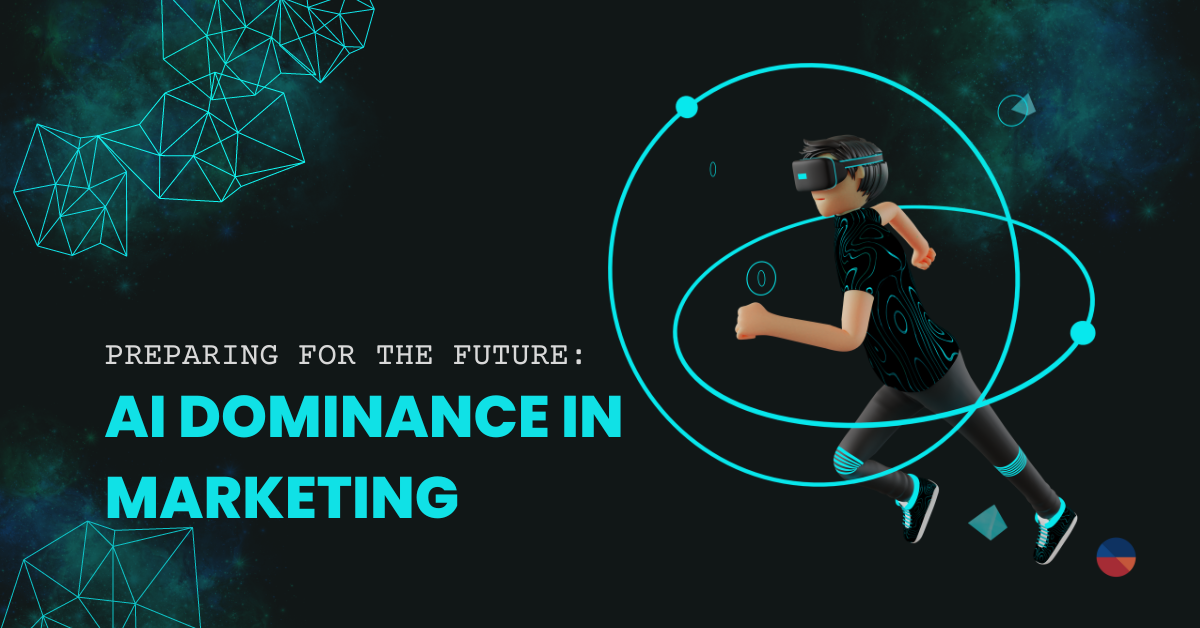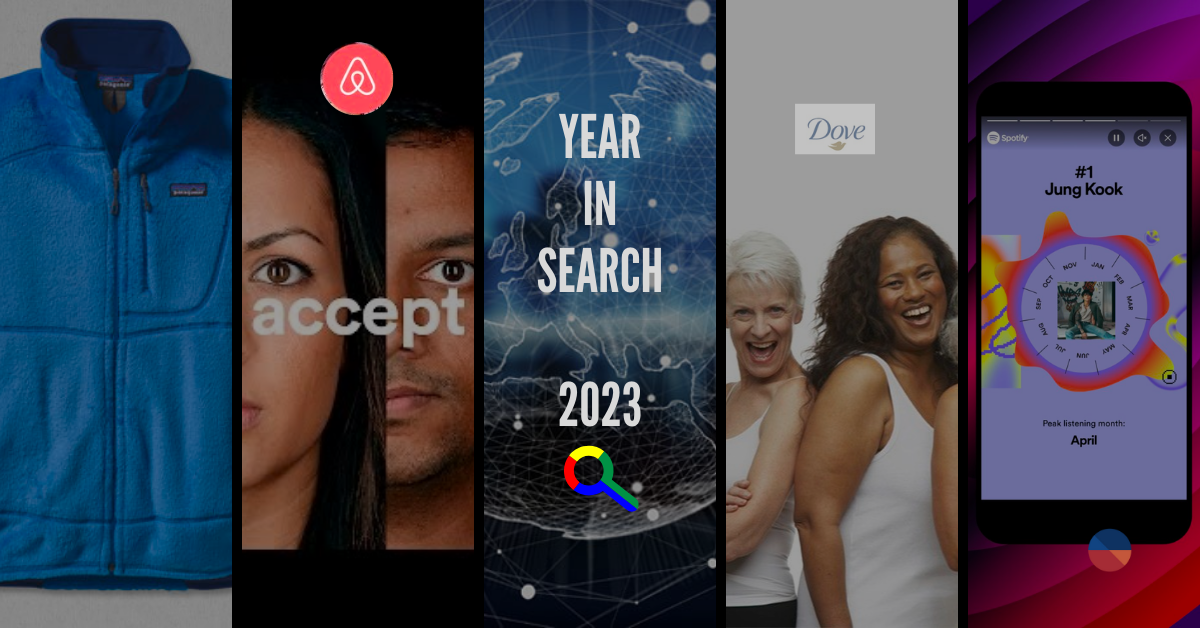Preparing for the Future: AI dominance in Marketing
As advanced technologies like AI continue to shape the world of marketing, it’s becoming increasingly important for businesses to stay ahead of the curve and prepare for the future. AI-enabled marketing has already taken off and is continuing to grow, from search engine optimised content, video generation, Automated Campaigns & Audience targetting.
In this blog post, I’ll be sharing my thoughts for the future of AI in marketing, and trends that we are observing, preparing and likely will be practicing as the year progresses.
AI-enabled marketing
AI-enabled marketing has already proven to be a powerful tool for businesses. AI can help marketers create more detailed customer profiles, target more relevant audiences, and automate the delivery of content-driven campaigns. AI can also be used to create search engine optimised content that can be used to rank higher in search engine results. It can also be used to generate video content that can be used to engage customers. Furthermore, AI-enabled marketing can be used to automate campaigns and target specific audiences with highly relevant messages.
At the same time, AI can be used to create more effective campaigns. AI-enabled marketing can be used to identify customer needs and tailor campaigns to meet those needs. AI can be used to predict customer behaviour and target them with content that is likely to drive the desired outcome. AI can also be used to analyse customer feedback and use it to improve future campaigns.
Finally, AI-enabled marketing can help businesses create more effective lead generation strategies. AI can be used to identify high-value customers and target them with tailored messages that are likely to yield better results. AI can also be used to analyse customer data and use it to create more effective campaigns.
Ethics in AI
AI has become an integral part of the marketing world, but businesses need to ensure that they are using ethical AI. Ethical AI is AI that is designed to be transparent and accountable. It should not be used for unethical practices such as discrimination or manipulation.
Businesses should also ensure that they are using responsible AI. Responsible AI is AI that is designed to be fair and equitable. It should not be used to exploit customers or manipulate them into making decisions that are not in their best interests.
The ethical use of AI should be a top priority for CMOs. CMOs should ensure that their teams are using AI responsibly and ethically. They should also ensure that their teams are aware of the ethical implications of using AI.
AI algorithms are being used to influence search engines that can understand user preferences and suggest more personalized results, so as the world progresses towards decentralization of the web (Web 3.0), Artificial intelligence will make its mark in the metaverse, bringing in new collaboration opportunities.
AI and the metaverse are likely to become increasingly intertwined as virtual environments become more complex and user interactions become more sophisticated. By leveraging AI, the metaverse can become more personalized, intelligent, and engaging for users.
At the intersection of AI and Metaverse and how it impacts today’s CMO?
The metaverse, which is a virtual world that allows people to interact with a computer-generated environment and each other, has the potential to significantly impact marketing in several ways. Here are some possible impacts:
New advertising platforms:
As more people spend time in the metaverse, it could create new opportunities for advertisers to reach consumers in immersive, interactive ways. For example, brands might create virtual experiences that allow users to engage with products in ways that are not possible in the physical world.
Enhanced brand experiences:
The metaverse could allow brands to create more personalized and immersive experiences for their customers. By leveraging data and insights from the virtual world, brands could tailor their marketing messages and product offerings to individual users.
Influencer marketing:
The metaverse could create a new class of influencers who have large followings in virtual worlds. Brands could partner with these influencers to promote their products and services to a highly engaged audience.
Virtual product placement:
In the metaverse, brands could place their products in virtual environments in a way that feels natural and unobtrusive. For example, a soft drink company might place a virtual vending machine in a popular virtual hangout spot.
Data insights:
The metaverse could provide brands with a wealth of data insights about consumer behavior, preferences, and engagement. By analyzing this data, brands could make more informed decisions about their marketing strategies.
With that, in 2023, working with multiple clients, I vouch for and will practice:
Invest in Product Placement
Product placement has been around for a while, but it’s only recently that businesses have started to realise the potential of product placement in entertainment content. Product placement in entertainment content has been found to be more tolerable to consumers than traditional digital advertising formats, and it can be used to effectively reach a wide range of audiences.
Businesses should also invest in sponsored content formats. Sponsored content formats can be used to create content that is more engaging and relevant to the audience. This can be used to drive sales and increase customer loyalty. Additionally, businesses should use influencer marketing to reach their target audiences. Influencer marketing has not yet reached its inflection point, so businesses should start investing in it now to get ahead of the competition.
Retention Over New Lead Acquisition
Retaining customers has always been a challenge for businesses, but it’s becoming increasingly important in the digital age. Businesses need to focus on retaining their existing customers and engaging them with relevant content and offers. This can be done through personalised campaigns, loyalty programs, rewards, and discounts.
Businesses should also focus on customer service. Customers should be provided with a high level of customer service so that they are more likely to stay loyal to the brand. Additionally, businesses should focus on creating content that is relevant to their customers. Content should be personalised and tailored to meet the needs of the customers.
Collaboration with the Technology and Sales & Marketing Teams
Businesses should focus on creating an integrated approach to marketing, sales, and technology. Technology, sales, and marketing teams should work together to create an integrated approach that drives business and builds the brand. Technology teams should focus on creating tools and systems that can be used to automate and streamline processes.
Sales teams should focus on creating strategies to reach target customers and close deals. They should also focus on creating relationships with customers and understanding their needs. Marketing teams should focus on creating content that is relevant and engaging to the target audience. They should also focus on creating campaigns that are tailored to meet the needs of the customers.
First-Party Data Collection
Data is becoming increasingly important in the marketing world, and businesses should focus on collecting first-party data. First-party data is data that is collected directly from the customers, such as website visits, purchases, emails, and surveys. First-party data can be used to create detailed customer profiles that can be used to create more effective campaigns.
Businesses should also focus on collecting second-party data. Second-party data is data that is collected from trusted partners, such as suppliers, vendors, and distributors. Second-party data can be used to create more detailed customer profiles and target customers with more relevant messages.
I bet heavily on AI
As humanisation of the Artificial intelligence takes focus, the future of it in marketing is bright, and businesses should start utilizing technology as an enabler to execute effective campaigns towards their target customers with relevant messages.






